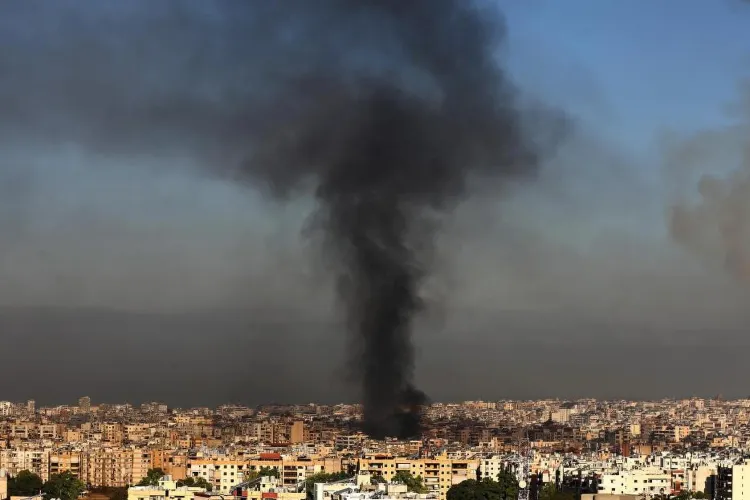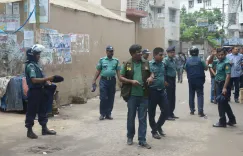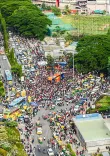Did the Israeli military eliminate a Hezbollah commander in Lebanon?

Synopsis
Key Takeaways
- IDF successfully eliminated a key Hezbollah commander.
- Extensive airstrikes conducted in Iran targeting military and nuclear sites.
- Operation Rising Lion initiated to counter Iranian nuclear threats.
- Continued monitoring and disruption of Hezbollah activities.
- Escalating tensions between Israel and Iran.
Tel Aviv, June 19 (NationPress) The Israel Defence Forces (IDF) announced on Thursday the successful elimination of Muhammad Ahmed Kharis, who served as Hezbollah's anti-tank commander, during a military operation in southern Lebanon.
"In the nighttime operation, the IDF utilized aircraft to target and eliminate the terrorist Muhammad Ahmed Kharis, who held the position of anti-tank commander within the Hezbollah terrorist organization located in the Shebaa compound, situated in the Nabatiya region of southern Lebanon. Throughout the conflict, he was responsible for orchestrating numerous attacks against the State of Israel, including anti-tank assaults directed towards Mount Dov, which resulted in the tragic death of Sharif Su'ad on April 26, 2024," the IDF stated in a post on X.
The Israeli military further emphasized that the eliminated commander had been actively promoting terrorist strategies in southern Lebanon, in direct violation of existing agreements between Israel and Lebanon.
"The IDF remains vigilant in monitoring and countering any attempts by the terrorist group Hezbollah to increase their capacity to threaten the State of Israel, especially under the influence of operations coordinated with Iran. We are committed to neutralizing any threat posed to the citizens of Israel," the IDF declared.
In a related development, the IDF reported on Thursday that 40 fighter jets from the Israeli Air Force, guided by precise intelligence from the Intelligence Department, conducted attacks on multiple military targets in Tehran and various locations throughout Iran, releasing over 100 munitions.
The IDF also targeted a non-operational nuclear reactor in the Arak region of Iran.
"This series of attacks is part of the IDF's broader mission to undermine the Iranian regime's nuclear weapons program. The reactor in Arak was struck, including its sealing structure, which is a critical element in the production of plutonium," the IDF conveyed on X.
The IDF noted that while the construction of the reactor commenced in 1997, it has remained unfinished due to international intervention. This reactor has the potential to produce high-yield plutonium, facilitating the acquisition of nuclear arms.
"By targeting the component responsible for plutonium production, we have effectively disrupted its capability for future nuclear weapon development," remarked the IDF.
Additionally, the Israeli military disclosed that their Air Force targeted a facility in the Natanz area of Iran used for nuclear weapons development on Wednesday night.
The IDF stated that this site contains specialized components and equipment essential for advancing nuclear arms development and that projects underway there are designed to expedite Iran's nuclear weapons program.
"Our fighter jets also struck military production sites belonging to the Iranian regime, including factories manufacturing raw materials and components for assembling ballistic missiles, as well as sites involved in the creation of Iranian air defense systems and missiles. Furthermore, we successfully destroyed air defense batteries, missile storage facilities, radar systems, and detection mechanisms utilized by the Iranian regime," the IDF added.
The recent escalation between the two nations ignited last Friday when Netanyahu announced the initiation of 'Operation Rising Lion,' a targeted military operation aimed at countering the Iranian threat of nuclear weapons, which jeopardizes Israel's very existence. This declaration provoked swift and aggressive responses from Tehran, escalating tensions in the region and pushing it closer to a wider conflict.









